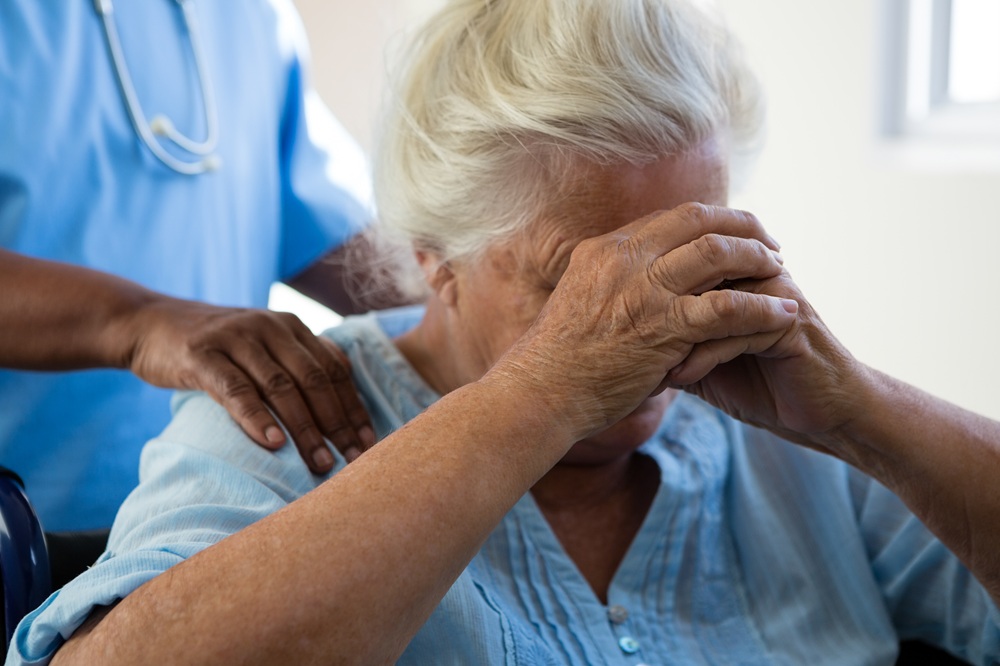
At Paintbrush Assisted Living, we recognize how troublesome an issue Seasonal Affective Disorder (SAD) can become for seniors. Often occurring during late fall and winter, seniors may experience low energy, increased appetite, and decreased motivation. For caregivers, whether home-based or professionals in senior living, tackling these issues and related symptoms can feel especially challenging. Let’s look at how to recognize the “winter blues,” its associated wide-ranging symptoms, and measures to manage it in winter.
Signs Of Seasonal Depression In Seniors
The key to addressing Seasonal Affective Disorder (SAD) is first confirming that the symptoms are truly related to seasonal changes. While the exact symptoms faced by individuals may vary, every senior with seasonal depression has one thing in common: shifts in serotonin and melatonin levels. Seniors with conditions like anxiety, depression, or hormonal imbalances are more likely to be affected by Seasonal Depression.
Here are some signs to look for in your loved one for SAD.
Mood Changes
Mood changes as a sign of seasonal depression in seniors often manifest as sadness, hopelessness, and irritability. They might start losing interest in activities and hobbies that they once enjoyed. This feeling of sadness or lack of interest in activities often persists for a long time.
Low Energy
Often caused by increased melatonin levels due to reduced sunlight exposure in the winter months, a senior might exhibit noticeable fatigue. Feeling low, they might experience sleep issues (either oversleeping or insomnia) and decreased motivation in daily life.
Social Withdrawal
Losing interest in interactions and social activities is another sign that a senior is facing seasonal depression. A senior who once actively attended social situations may start to avoid them. They may begin losing interest in social activities they once enjoyed. All this leads them to increased isolation that itself may have more devastating effects on their health.
Appetite Changes
Seasonal depression also affects a senior’s appetite, manifesting as increased cravings (especially for carbohydrates) or decreased appetite. These issues then lead to unexplained weight changes.
Physical Symptoms
Physical changes or symptoms that might occur in seniors due to seasonal depression include fatigue, changes in appetite or weight, and sleep disturbances like oversleeping or insomnia. Other less obvious physical signs consist of chronic aches, headaches, or a general feeling of disorientation.
Cognitive Changes
Cognitive changes are one of the most noticeable signs of seasonal affective disorder (SAD) in seniors. These can be seen as difficulty concentrating, memory lapses, slowed thinking, or other cognitive issues. They affect a senior’s daily living experience, including emotional changes such as sadness or irritability.
Managing Seasonal Depression In Seniors
Seasonal depression in seniors can be effectively managed by following a multifaceted approach. This comprehensive approach focuses on enhancing seniors’ diets and lifestyles and on fulfilling social needs. For those with severe symptoms, seeking professional help may be necessary.
Increase Light Exposure
There are two ways to increase light exposure: spending more time outdoors during daylight hours and keeping indoor spaces as bright as possible by opening curtains and blinds. And second—light therapy (phototherapy), where the senior is given daily exposure to a special light (10,000-lux) box that mimics natural outdoor light.
Maintain A Routine
There’s something special about following a routine. It gives seniors a structure, a familiar experience, even on different days. To prevent and combat seasonal depression, seniors can follow a consistent routine. It will briefly cover their sleep and eating schedules, physical activity, and access to natural light or phototherapy. Doing so will enable them to experience greater energy and a higher mood.
Stay Socially Connected
Seniors must be motivated to make and maintain social connections, whether through in-person visits or online interactions. Sharing connections with loved ones would help them combat isolation, a significant risk factor for depression in seniors.
Eat A Nutritious Diet
Seniors need to keep track of their diet, too. They must focus on a balanced diet rich in fruits, vegetables, and whole grains. Avoiding excessive sugar, caffeine, and alcohol, or at least limiting their consumption, is also recommended. Eating healthy will benefit their mood and energy levels.
Consider Supplements
As adults age, their bodies often absorb fewer nutrients, limiting their ability to extract everything they need from diet alone. For seniors at higher risk of seasonal depression, vitamin D, omega-3 fatty acids, and B-vitamin supplements are vital.
Seek Professional Help
For seniors with more severe symptoms or whose symptoms don’t improve, seeking professional assistance is appropriate.
Paintbrush Assisted Living—A Home-Like Senior Living Community
At Paintbrush Assisted Living, we understand that for seniors, the post-holiday season may sometimes feel overly overwhelming. Shorter days and less sunlight disrupt their quality of life. They experience disrupted sleep and mood, which makes them feel isolated. They may show a lack of interest, decreased energy, and frequent mood swings.
However, by adhering to the guidelines and measures outlined above, caregivers can effectively manage these concerning conditions. Following them, they will be able to make seniors feel at ease and comforted. To ensure your aging loved one stays in good shape throughout the year, it’s essential to choose a trusted senior living community like ours at Paintbrush Assisted Living.
With us, seniors experience the best of their lives in their golden years. As a homelike senior living community, we help seniors make a graceful transition to their new home. Their everyday lives are filled with joy, leisure, and contentment. They never feel distanced from their home, allowing them to lead a quality life and experience wellness in everyday life. Contact us today and find out how we can help your loved one get the support they need in their later years throughout the year.